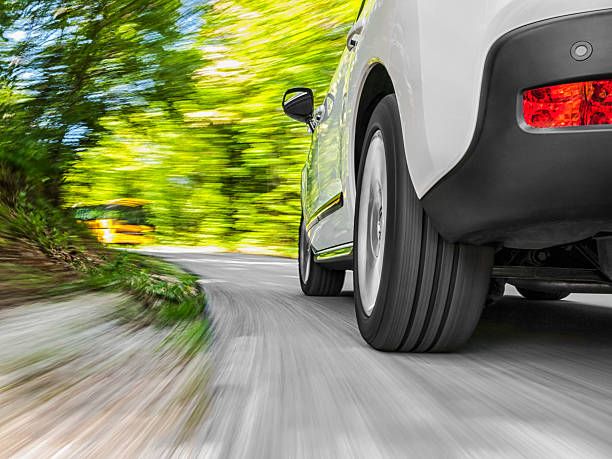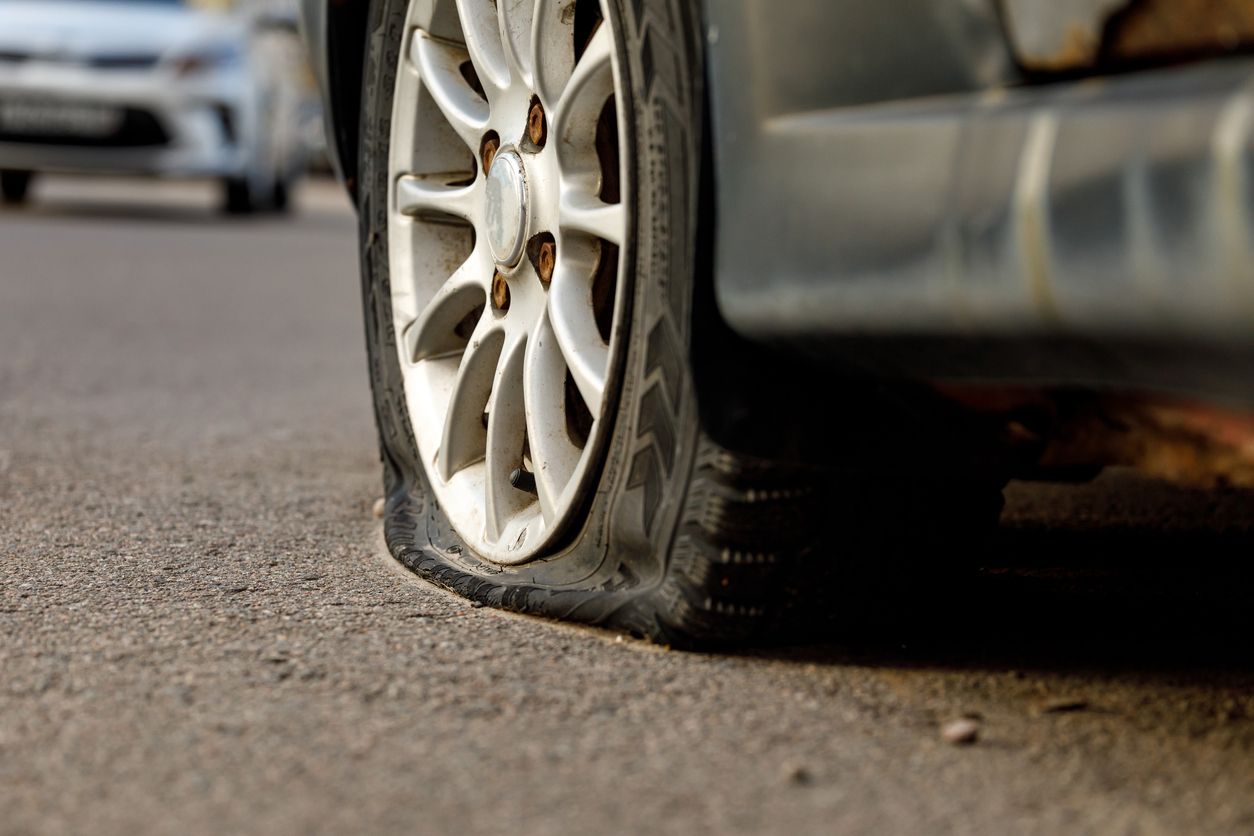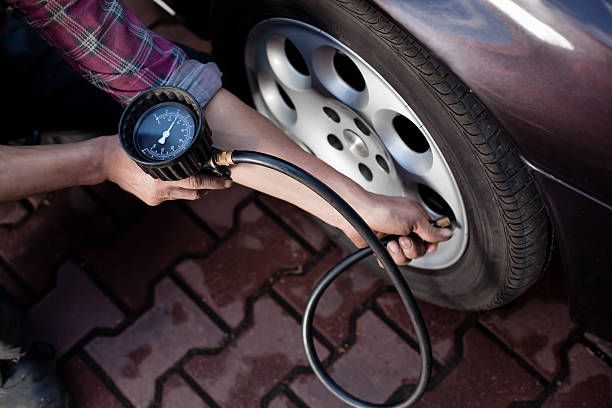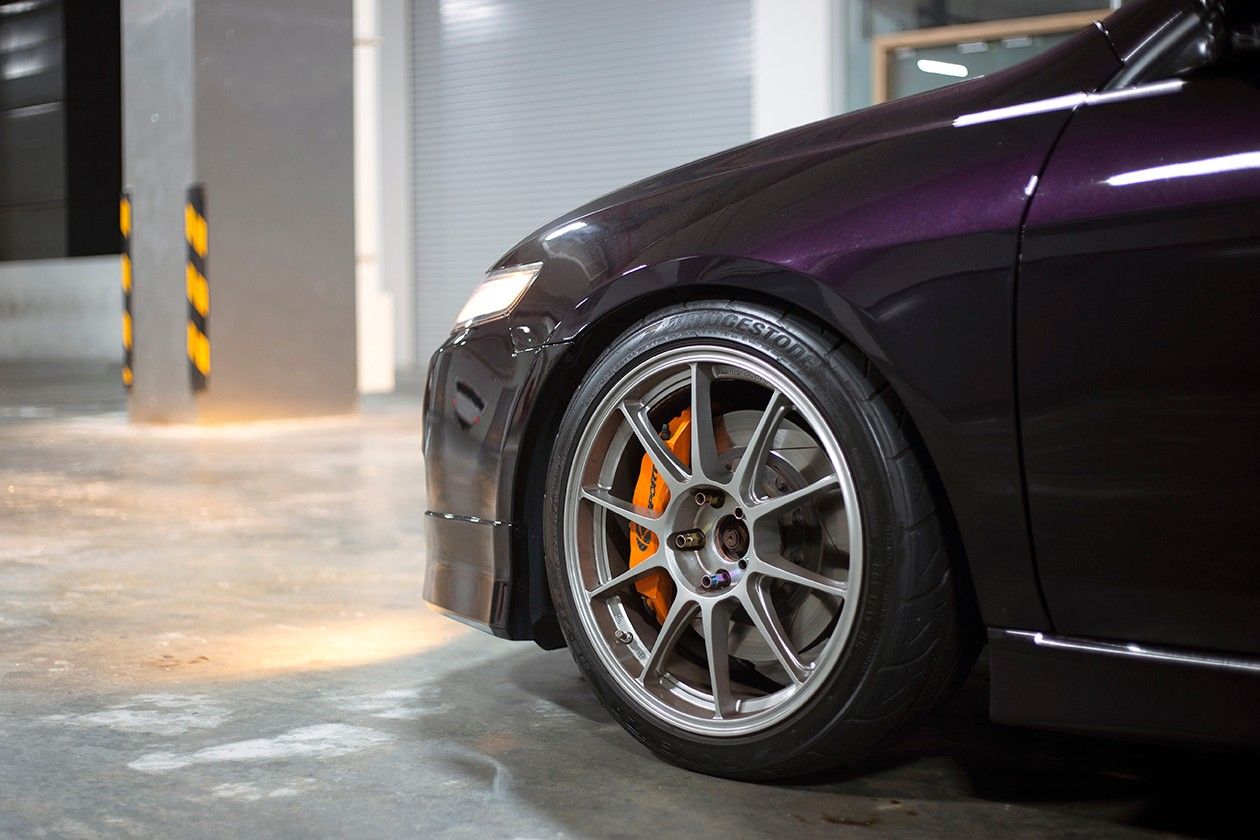What's not to love about an SUV? From where you sit, you feel like you can command the road. There's plenty of cargo space, and you can drive it almost anywhere. Plus, your SUV just looks stylish! But those tires? Your SUV tires probably don't get the attention they need until it's time to replace them. Let's make that part loveable, too, with this simple guide for how to choose good tires for your SUV.
How to Choose Tires for My SUV
No two SUVs are created equal, which means that when learning how to choose good tires, there are plenty of factors to consider. Whether you drive a compact SUV for your daily commute or a large SUV for work-related instances, considering things like tire size, type, and lifestyle quickly take priority. Fortunately, whatever your needs, there are sure to be multiple choices available for your SUV tire preferences.
Consider Tire Dimensions
Choosing the right tire size for your SUV is critical to reliability. Purchasing a set that's too big or small, too short or tall, or too narrow or wide can have a negative impact on vehicle components and fuel efficiency. To start, consult your owner's manual or the sticker on the driver's side door jamb. There you should find your vehicle manufacturer's recommended tire size. You'll want to stick close to this range when purchasing your new set.
Consider Weather Conditions Where You Live
Whether you live in a place that's cool and sunny year-round or a region that gets lots of snow, it's essential to make sure that the tires you use are up for the task. Tires come in many types, but you can narrow down your search by finding the right tire size and the right weather capabilities for your location. Here are a few weather-related tire types to consider:
- All-Season Tires: All-season SUV tires, such as the Bridgestone Dueler H/L Alenza, are built to adapt to wet and dry road conditions while providing a smooth and quiet drive. However, because they adapt to various weather types, you get more of a moderate balance between what they can handle. They aren't optimal for harsh or extreme conditions. If you live in a location with mild summers and winters and want reliability for both, this tire type may be for you.
- Winter Tires: Designed with rubber that won't stiffen or harden in below-freezing temps, winter SUV tires like the Bridgestone Blizzak DM-V2 are exceptionally beneficial for those who live where harsh winters are more likely. Most winter tires come equipped with full-depth tread features, deep circumferential grooves, and acute siping patterns. These features help to boost acceleration capabilities, provide reliable traction, improve vehicle handling, and expel snow and slush buildup for the long-lasting performance you need winter after winter.
- Summer Tires: Summer tires like the Firestone Firehawk Indy 500 can provide hydroplaning resistance, adequate road grip in baking hot temps, and responsive handling in more moderate weather conditions. But because of their firm rubber makeup, these tires are not optimal for extreme winters as they may become rigid and provide less traction than all-season and winter tires.
Consider Your Lifestyle
Whether you frequently haul your child's soccer team to practice, utilize your SUV for work, or enjoy the more-than-occasional overlanding experience, considering your lifestyle before purchasing a new set of tires is a great idea. Getting the wrong kind can leave you with less than reliable tires and disappointment when they fail to meet your daily needs. Here are a few types to consider:
- Performance Tires: Performance tires complement the thrill that often comes with sports vehicles. A good set will feature unique tread patterns that are great for enhanced precision, responsiveness, and traction as you enjoy a heightened driving experience. These tires typically have higher speed ratings than most tires and can keep up with your SUV's engine horsepower without difficulty. The trade-off, however, is in longevity. Performance tires are known to wear a lot faster than most.
- All-Terrain Tires: If you're the sort of SUV driver who enjoys taking the road less traveled, all-terrain tires may be for you. Built to withstand all of your off-roading needs, they often excel against gravel, sand, rocks, light mud, and mild snow. All-terrain tires, such as the Firestone Destination A/T2 and the Bridgestone Dueler A/T Revo 3, feature more aggressive tread patterns and heavy-duty designs to provide traction in off-road driving conditions. These tires also provide great highway and road stability.
- Mud-Terrain Tires: Mud-terrain tires such as the Firestone Destination M/T2 provide superior traction in soft road conditions like deep mud and sand. With their large tread blocks and aggressive tread patterns, off-roading enthusiasts can enjoy out-of-the-box experiences time and time again. However, because of their intense design, they tend to be louder and bumpier on regular roads.
- Touring Tires: For the frequent, daily SUV driver, touring tires are another great option. These premium tires are usually designed to provide responsive handling, comfort, longevity, and reliable traction for a smooth driving experience in moderate weather conditions. Most touring tires also feature all-season capabilities and are often labeled as such. Although, they typically have a higher speed rating. The catch — these tires are not the best option for those who live where extreme weather conditions are common.
Let Firestone Complete Auto Care Help You Choose the Right SUV Tires
Finding the right tires for your SUV can feel daunting, but it doesn't have to be. Lean on Firestone Complete Auto Care's knowledgeable teammates to help you make the right decision. We'll help you narrow down the options based on your personal preferences and needs. Shop SUV tires online or visit your nearest Firestone Complete Auto Care for on-the-spot tire recommendations today.



